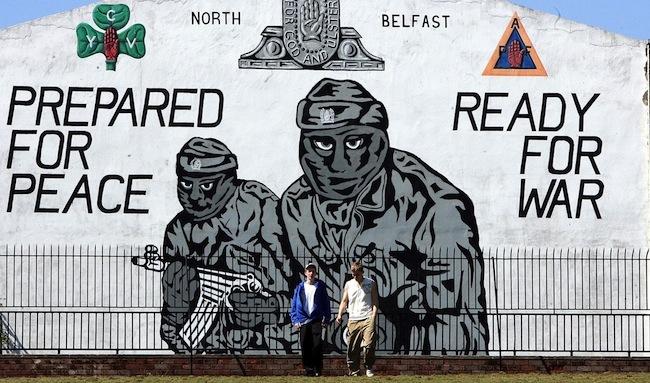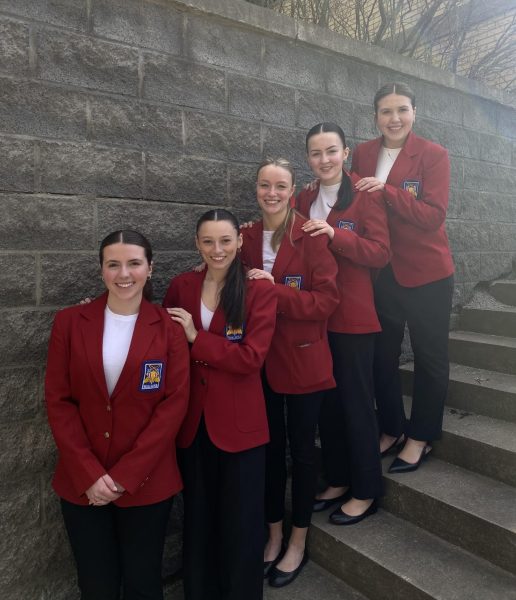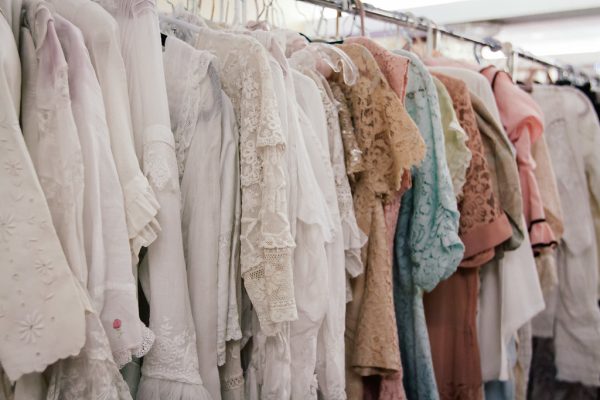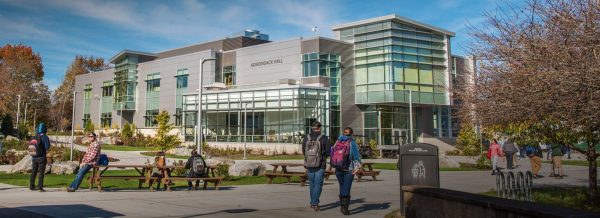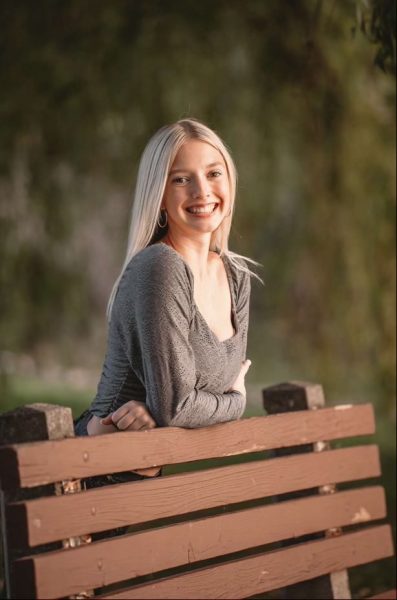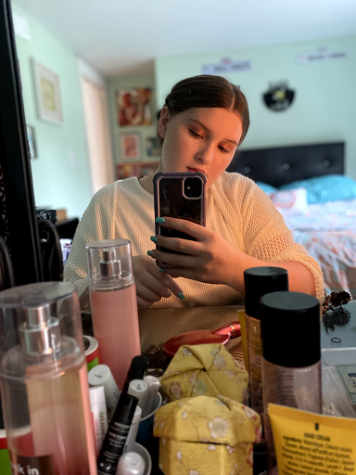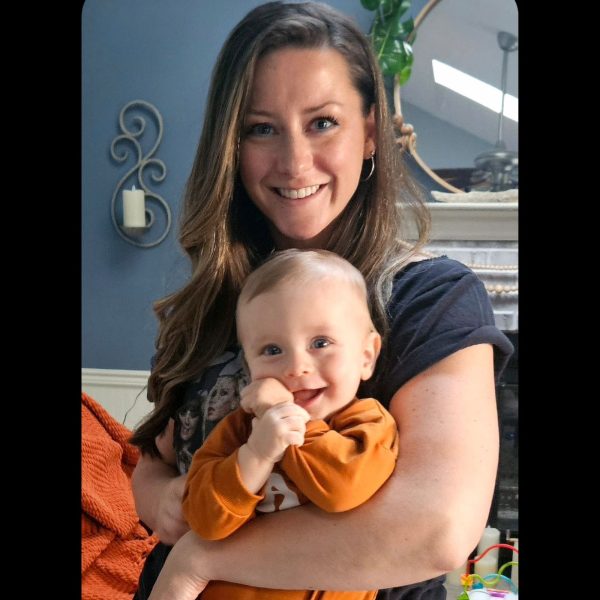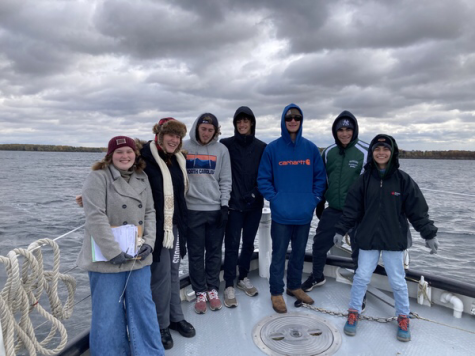Fragmented Peace: Northern Ireland Seventeen Years Later
PA Archive/Press Association Images
A loyalist mural in Belfast
September 28, 2015
The Emerald Isle: a place of beautiful, lush meadows; a home to misty valleys. To me, the descendant of Irish and Scots-Irish immigrants, the island always felt like a home away from home. Despite never visiting the island (besides Google Earth), Ireland has spoken to me. Even though I want to visit over 50 countries in my lifetime, Ireland is the one I want to see most. But this beautiful island lacks serenity: Ireland’s history is one of a divided nation, of sectarian violence. Her terrible past still lingers to this day.
Ireland’s political history alone is something I could easily write its own article about. However, I’ll give a brief, condensed version. In the 1500s, Ireland was conquered by the English. The English encouraged settlers (primarily from Scotland) to settle in the northern part of the island and start plantations. Tired of English rule, a group of Irishmen who were inspired by the French Revolution began their own rebellion in 1798. Though it was crushed in four months, it planted the seeds of Irish Republicanism (the idea that the Irish should govern the entire island). In the late 1800’s, tensions rose again between the nationalist and unionist communities. The nationalists, who were predominately Catholic, opposed the growing disparity between themselves and the Protestant minority (which was primarily composed of people who supported an Irish union with Great Britain). In the early 1900’s, the possibility of Home Rule for the Irish was emerging. This would allow Ireland to become a dominion of the British Empire, giving them autonomy. Unfortunately, World War I pushed back the possibility of Home Rule. In 1916, an armed insurrection by Irish republicans in Dublin led to the largest revolt since 1798. Easter Rising as it was known, was quickly suppressed, but influenced serious discussions of an Irish republic. In 1918, the republicans won the majority of the Irish seats in the British Parliament under the banner of the Sinn Féin party. In 1919, Sinn Féin established a breakaway government, leading to the Irish War of Independence. Lasting two years, this led to a ceasefire under the Anglo-Irish Treaty. Ireland would gain independence as a free state, or a dominion of the British Empire. In 1922, a civil war broke out between opposing groups of Irish republicans. “Pro-Treaty” forces supported the Anglo-Irish Treaty and the establishment of an Irish Free State that encompassed the southern portion of Ireland and left the northern part of the island as part of the United Kingdom. “Anti-Treaty” forces supported a fully united Ireland. The war lasted only ten months, but claimed more lives altogether than the War of Independence. The Pro-Treaty forces, with the help of the United Kingdom, defeated the Anti-Treaty forces, which was primarily composed of the Irish Republican Army (a different entity than the one mentioned further on in the article). The Civil War left generations upon generations of Irish society divided.
Jump ahead a little over 45 years. In the late 1960s, civil unrest began in Northern Ireland. The slight Catholic majority had been oppressed by the Protestant minority for decades. Schools were segregated over religious ideology. Catholic politicians were barred from office. Houses were denied to Catholic families in certain neighborhoods. Tired of constant oppression, a civil rights movement emerged. From this, an Irish nationalist front in Northern Ireland had begun. In 1969, riots broke out between the civil rights protestors and the Royal Ulster Constabulary (RUC) in the predominantly Catholic and nationalist neighborhood of the Bogside in Londonderry/Derry. Commonly known as the Battle of the Bogside, rioting was so intense that the Northern Irish government requested British Army intervention. This marked the beginning of The Troubles, an ethno-nationalist conflict that in the end left over 3,500 dead in a span of 30 years. However, it’s important to make a very important distinction: The Troubles was not a religious conflict. Although it was a slightly sectarian conflict (with nationalists primarily being Catholic and unionists being predominantly Protestant), it was a political conflict at its core regarding the position of Northern Ireland. The primary belligerents in the conflict were republican (Provisional Irish Republican Army, Irish National Liberation Army) and loyalist (Ulster Volunteer Force, Ulster Defense Association) paramilitary groups. The terms republican and loyalist are associated with the extreme end of nationalist and unionist, respectively. The Troubles were marked with car bombs, hunger strikes, political intimidation, and state-sanctioned torture. Conflict raged heavily until 1998, when on August 15th, the Omagh Bombing occurred. Carried out by a Provisional IRA splinter group called the Real IRA, who opposed the peace process, the bombing left 29 civilians dead. This act was the worst atrocity of The Troubles. Disgusted by the bombing, paramilitary forces decommissioned their weapons and honored the Good Friday Agreement, which lead to a semblance of peace in the country. However, this peace is erstwhile: various loyalist and republican splinter groups (called dissidents) still wage a low-scale campaign of violence. Since the Omagh Bombing, 22 people have died from this dissident campaign, the last death occurring in 2012 when a prison guard was shot on a freeway by the Real IRA in response to the treatment of republican prisoners at Maghaberry Prison.
While Northern Ireland hasn’t fallen back into a state of constant violence, it still is in a position of disarray. The population is still heavily divided, and riots aren’t uncommon. ‘Peace Walls’ divide Catholic and Protestant neighborhoods. These walls, which range as high as 25 feet, often have fencing atop to prevent petrol bombs and rocks from being thrown over. Housing close to the peace walls often have cages that enclose the garden or porch areas, allowing debris to roll off. The very existence of these peace walls is a controversial topic, as many deem them as encouraging segregation between communities. However, a study in 2012 indicated that nearly 70% of residents believe they are necessary in preventing violence. Another issue in Northern Ireland is the issue of flags. Since 1973, Northern Ireland has not had an official flag. In nationalist areas, the Irish tricolor is flown, and in unionist areas, the former flag of Northern Ireland (the Ulster Banner) or Union Jack is flown. In December of 2012, it was ruled that the Belfast City Hall could only fly the Union Jack on specially permitted days. This led to major protesting and rioting, some of the most intense in recent years. Northern Ireland also faces a severe drug problem. Dissident paramilitary groups often operate drug rings in their respective neighborhoods. Along with that, groups such as Republican Action Against Drugs (RAAD) performs vigilante style assaults on alleged drug dealers. RAAD formed in 2008, and has committed acts of intimidation, knee-capping (the breaking of one’s knee) and even murder. In 2012, RAAD merged with the Real IRA. Another major issue in Northern Ireland is that of de facto segregation. Despite the Good Friday Agreement and various bills, the rift between the communities in the areas of housing, schooling, employment, and interfaith marriage are still felt. Over 90% of children still go to schools that are populated solely by their own denomination. It’s common for children to grow up and have minimum interactions with somebody of the other community. The trend of integrated education is fortunately on the upswing. There are over 60 integrated schools in Northern Ireland, as well as several integrated preschools and nurseries. However, it’ll be years before more pupils are enrolled in integrated schools.
Over the summer, I gained the opportunity to speak with two residents of Northern Ireland via a Reddit discussion board. Both Vic Rockefeller and Clodagh (screen names), who come from very different backgrounds, shared their experiences growing up in Northern Ireland.
Vic was born in Belfast, and grew up in a middle-class unionist community.
Tell me about yourself and your family. What was your upbringing like?
I was born in Belfast, and grew up about 5 miles north of the city in a place called Whiteabbey along the east Antrim coast. I was brought up by my mother (my father left her when I was born), and I also have a sister who’s two years older than me. My upbringing was perfectly normal as far as I remember. When I was a kid, I didn’t know the difference between a Protestant or a Catholic, or a Unionist and a Nationalist. It was sort of the rule of the playground that Catholics were fenians or taigs, and Protestants were huns. If you were a hun, the taigs were your natural enemy and vice versa. But by the time I was 10 I had grown out of that brainwashing. We had no religious affiliation at all. I wasn’t christened or baptised or anything. I’ve never believed in a God. You see here, you can be a Protestant or a Catholic and not even believe in a God. It’s simply all tribal.
What was your neighborhood like growing up? Was it predominantly one religion/ideology, or was it heterogenous?
I grew up in an estate called Fernagh. It was mainly unionist, but it had a few nationalists/Catholics as well. Whiteabbey in general was mixed. It would’ve took me about a 5 minute walk to get into a national area and see the Irish tricolours flying. The top of Whiteabbey (where I lived) was mainly unionist and the bottom part was mainly nationalist. So around my area you had DUP (Democratic Unionist Party) election posters and further down you’d have Sinn Fein. Generally, only the elderly folk were actually religious. I’ve always been a man of science.
Growing up, what were your political views? What are your present-day political views like? Have they shifted or have they remained the same?
Growing up in a mainly unionist area, I viewed myself as a unionist, in the purest sense that I believed Northern Ireland was better off a part of the U.K. rather than a part of a United Ireland. These day, I don’t really care anymore. In the last election, I voted for the SDLP (Social Democratic and Labour Party), which is a nationalist party. Unionism has always been much more extreme in its views than nationalism, or at least they’re certainly much further right-winged. They’re deeply religious (against such things as same-sex marriage and abortion), and are adamant on strengthening the British identity. Both of those things alienate me. I was never a loyalist. Never a member of the Orange Order or had dealings with the paramilitaries. Loyalists in my view are scum. We often view them as the rednecks of Western Europe. So I guess I’m a unionist slowly meandering over towards nationalist.
Throughout the conflict, how did you feel about the paramilitaries?
All the paramilitaries are nothing but scum in my view. I don’t have a specific opinion of any of them. Simply that they’re scum. From a unionist area, I was more aware of the doings of the UDA, UFF, UVF etc rather than the IRA. My uncle was a member of the UDA at one stage. When you’re young, it’s very easy to get all the sectarian propaganda imprinted into your head. If your dad was in the UDA, chances were you were going to be in it too. If your dad was an Orangeman, so were you. You were scared of them, in the same regards that you were scared of all loyalists. You were scared of them because they were willing to die over something so pathetic and insignificant. And they wouldn’t think twice about dragging you down with them.
What are your thoughts on the Good Friday Agreement?
Overall, I think the Good Friday Agreement was handled very well and was treated in the least biased manner possible.
What was your reaction to the Omagh Bombing in 1998?
I felt the same way I did when at news of any bomb going off. Ashamed and embarrassed of the place that I came from.
Were you or any of your loved ones personally affected by the violence?
Not really, no. As a teenager, running into a group of loyalists or dissident republicans wasn’t uncommon and a bit of a fight would break out, but it wasn’t a big deal. The closest I know of to me is that my uncle is a police officer and worked on active street duty during the height of the Troubles. He’s still slightly haunted by some of the things he’s seen which is understandable, but he’s happy to talk about it. Coming from Northern Ireland, a sense of humour was important. We tend to have quite a dark sense of humour and could make a joke out of anything, no matter how awful it was. It was how we dealt with it I guess. Or we’d just laugh at the idiocy of some of the ‘terrorists’, like blowing themselves up by sitting on detonators.
Now that there’s a sense of calm in Northern Ireland, what will it take to maintain this? Should the peace walls stay up? Should the Orange Order be able to march through republican communities?
To be honest, I find it a bit ridiculous at times that ‘the Troubles’ ended in 1998 and since then we’ve had peace. We don’t have peace here. Northern Ireland will never truly have peace. It’s the reason it exists. Progress has been made, but I think people from outside Northern Ireland (I might be wrong here, just the assumption I get) overestimate that progress. Nowadays, bombs don’t go off, instead they’re found. The whole ideology of Northern Irish politics is to ignore a problem until everyone has forgotten about it. Stormont (Northern Ireland’s assembly) can’t even agree on a budget. We have a government who can’t even agree on such simple and basic things like that. Nothing ever gets done because the parties can never agree on anything. It’s the stalemate of Northern Ireland, sadly. The Orange Order should respect the republican communities and avoid them. Claiming moronic things such as “The Irish language is part of the Republican Agenda”, tells you the class of the people they are.
How do you feel about the dissident republicans like the RIRA and the CIRA, as well as the dissident loyalist paramilitaries? Are they nothing more than organized crime organizations at this point?
Basically, yes. They’re essentially the underworld bosses in the highly sectarian areas. Like I said, I regard all paramilitaries as scum. I think they originally stood for what they believed to be right, but along the way they lost track of their goals and became nothing but murderers.
Should Northern Ireland have a flag? Should any specific flag be flown?
I think it’s fair that the Union Flag is flown on the 16 designated days as we are part of the United Kingdom, but not 365 days of the year. As for a flag to represent Northern Ireland? I’ve personally always been a fan of St. Patrick’s Saltire which represents (Northern) Ireland in the Union Flag, so it would be a fitting representative for the country/constituent. But no one will ever agree on one flag, and there’s no way Northern Ireland can make it on it’s own, so no, it’s best we do not have any flag at all.
Thoughts on Bobby Sands and Billy Wright?
I met Bobby Sands when I was a kid, he grew up in Rathcoole which was about a mile down the road from me. He was a nice guy when I met him. When I saw him on the news during the Hunger Strikes in 1981, I was very surprised. I respected him for doing what he felt was right, but I thought his actions were questionable. As for Billy Wright, I honestly don’t know enough about him to make up an opinion, sorry.
How did you react to the Holy Cross dispute in Ardoyne?
I had to Google that! I have no memory of that whatsoever. My reaction when I saw it on the news was probably “same old s**t…” There’s always some nonsense like that on the news, you learn to block it out!
If you could say anything, what would you say to the teens of America (or Americans in general) about the conflict?
The Troubles of Northern Ireland were fought by two extremist tribes while everyone else simply got on with their life. The ‘conflict’ still goes on to this day, that will never change. And most people will still simply carry on with their lives and not give a damn about it. It is something people here don’t usually wish to talk about as we find it embarrassing or we simply want nothing to do with it. But please, just don’t order an Irish Car-bomb if you ever find yourself in a pub in Ireland!
Any closing thoughts or hopes for the future of Northern Ireland?
Northern Ireland’s politics are doomed to fail. It is a stalemate that can’t be beaten. It’s always been this way and near everyone’s given up on N.I’s politics. As for the future of Northern Ireland? If we find ourselves as part of a United Ireland one day, it won’t matter to me. It’s simply what’s best for where you live and if a United Ireland can provide a better life, then I’m all for it. I guess if I have one hope for Northern Ireland, it would be to remove the stigma and bad reputation it has. It’s a truly wonderful place with the friendliest people you could hope to meet, beautiful scenery rich in ancient history and a sense of humour better than anywhere else. Like Liam Neeson said, it’s the world’s best kept secret!
Clodagh, on the other hand, was born to a Catholic family and lived through The Troubles throughout the 80s and 90s. Her father was a member of the Provisional IRA.
Tell me about yourself and your family. What was your upbringing like? What was your neighborhood like? Was it a mixture of different ideologies or predominantly homogeneous?
I’m an atheist 33 year old woman, raised by a Catholic family and I grew up in council house in a little village by the sea which was predominantly Catholic. My family were evacuated down to this village during The Troubles. I have 3 brothers and I’m the only girl. I’m the youngest with my next sibling being 10 years older than me. My mum had me when she was 40 years old, which was quite a feat in the early 1980s, whereas nowadays it seems normal. My father was a member of the IRA during the 60s and 70s. He joined the IRA, because at the time, Catholic people were unable to get jobs and were discriminated against from entering into employment by Protestants. The vast majority of businesses and public sector employment at that time was controlled by Protestants and if you came from the wrong part of Belfast (the West), went to the wrong school, or had a Catholic surname, it was almost impossible for you to gain employment as a Catholic. He was unable to support his family so I guess he felt forced into doing something about it. My father was a good man, he never killed anyone. The IRA gave him bombs to plant, but he planted them in fields so that they would detonate safely and not kill anyone. I’m not condoning his actions (i.e. joining the IRA) but I do understand why he did what he did – desperate people resort to desperate measures. Eventually he was captured and served a 6 year jail sentence. Upon being released from jail, the MI5 forced him into servitude. He didn’t want to rejoin the IRA, but they made him join as a double agent. He lasted about two years, giving the Security Forces details on bombs, shootings and other terrorist events. He saved a lot of lives, but at the detriment of his own. On 13 February 1985, he was found dead. Later we found out that Stakeknife (also a double agent working with MI5) had stripped him naked, tortured him for three days and shot him in the head.
Growing up, what were your political views? What are your present-day political views like? Have they shifted or have they remained the same?
My views haven’t changed since I was a child. My mother raised me to respect people regardless of race, religion or sexual orientation. I look around Northern Ireland now and see two groups of people. Not the same two groups of people that the media regularly display – “the Protestant loyalists” and the “Catholic republicans”. I see people who are for peace, and people who are against peace. I want peace, as do most of the people living in Northern Ireland. But unfortunately there is still a small percentage of people here that don’t want peace, for whatever reason that might be. Some people just want to watch the world burn.
Throughout the conflict, how did you feel about the paramilitaries?
They’re all the same in my books. Some people just want to watch the world burn.
What are your thoughts on the Good Friday Agreement?
It was a long time coming. People like Ian Paisley and Gerry Adams who seemingly got all the credit were the main voice and cause of the troubles in my opinion. I have zero respect for either of these politicians, nor the parties they represent [The Democratic Unionist party and Sinn Fein, respectively].
What was your reaction to the Omagh Bombing in 1998?
I cried for almost a week straight. The loss of all those lives was devastating to families and communities. It was an unnecessary act of evil.
Were you or any of your loved ones personally affected by the violence?
As I mentioned before, my dad was shot by “Stakeknife” after being tortured for three days, as a direct result of being forced into a position he didn’t want.
Now that there’s a sense of calm in Northern Ireland, what will it take to maintain this? Should the peace walls stay up? Should the Orange Order be able to march through republican communities?
The peace walls should be torn down and people should learn to live as one community rather than two. Before this happens though, action needs to be taken first. 95% of people in Northern Ireland still send their children to segregated primary and secondary schools. The need for integrated schooling has never been greater. If children are raised up together as one community, rather than two separate communities, then we can hope to see change in the future – but until that happens, neighbourhoods, schooling and communities still live in segregated areas.
How do you feel about the dissident republicans like the RIRA and the CIRA, as well as the dissident loyalist paramilitaries? Are they nothing more than organized crime organizations at this point?
I believe these individuals are mislead, for whatever reason, and they require re-education and reintegration into society. They obviously have mental health issues and don’t function as members of society. They are criminals.
Should Northern Ireland have a flag? Should any specific flag be flown?
Honestly, I don’t care much about flags. I think the flags issue is massively overblown, but I’d rather people argued about flags than shoot and bomb each other. A Northern Irish flag wouldn’t appeal to either community, as far as I can see. The issue runs much deeper than that. Communities need to be integrated before action like this is taken.
Thoughts on Bobby Sands and Billy Wright?
People of the past, they should be remembered like all those who have died, but they aren’t martyrs.
How did you react to the Holy Cross dispute in Ardoyne?
It’s a very good way of showing how much this country needs integration. All over the country we have “Catholic neighbourhoods” and “Protestant neighbourhoods”, “Catholic towns” and “Protestant towns”. The reason this happened is because both sides haven’t learned how to live together and respect each other.
If you could say anything, what would you say to the teens of America (or Americans in general) about the conflict?
I’d say that the Troubles and the ongoing disputes are caused by people who have no concept on how to move forward and ask forgiveness for the misguided people who are causing it.
Any closing thoughts or hopes for the future of Northern Ireland?
Integration, integration, integration! It’s the only hope we have of living as one community. We need to breed the hate out and we need people to stop voting for the extremist and “tribal” politicians.
